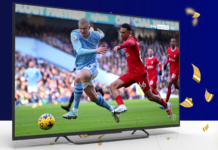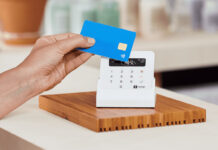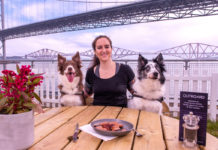Getting hot drinks right lets pubs grow sales throughout the day, firms say
The lines between pub, restaurant and coffee shop have blurred significantly in recent years and while a hot drinks menu is now common across the on-trade, can pubs really offer the same quality as a high street coffee shop?
![MA Milk pour[12]](https://sltn.tempurl.host/wp-content/uploads/2015/07/MA-Milk-pour12.jpg)
Hot beverage specialists seem to think so – and they’ve offered some advice on how the on-trade can get its offer right and make the most of coffee’s popularity.
Andrew Jack, head of marketing at Matthew Algie, reckons consumers have become “more discerning” and that demand for higher quality has increased.
This presents an opportunity for publicans, according to Jack, who said offering barista-made coffee could drive sales throughout the day.
“For example, having a take-away option at lunch time, offering after an evening meal or recommending with dessert,” he said.
“Coffee is now on par with the pint as a tool for socialising so, for pubs and bars especially, offering well-made coffee throughout the day and in the evening is a good way to increase margins.”
Jack highlighted breakfast as the “fastest growing” period for sales growth and suggested operators consider adapting to cash in on this.
“Operators should consider extending trading hours and providing a great morning coffee menu in order to capitalise on these growing consumer trends,” said Jack.
When serving a cup of coffee, publicans should remember that true barista-style coffee doesn’t just taste good, it looks good too – a crucial factor in driving sales, according to Jack.
“Consumers drink with their eyes so the best way for operators to promote their hot beverages is to present them in a visually appealing way, both at the point of purchase and pre-purchase via point of sale imagery and in real life,” he said.
“This is particularly effective with speciality drinks as these often contain eye-catching or unusual ingredients and are only available for a limited period which adds value to the offer.”
If operators want to ensure they are selling a top quality, aesthetically pleasing cup of coffee then they’re going to need to bring staff up to speed. Training is key to achieving this, said Jack.
“Staff should be trained in how to serve the drinks to a tried and tested spec and garnish them indulgently, for example with cream or other speciality toppings,” he said.
“It is worth considering the style of cups and glassware – for example jam jars, highball glasses – and colours of straws to use when serving speciality and seasonal drinks, as these also play a part in presentation.”
Simon Frost, chairman of the Catering Equipment Suppliers Association, agreed that training is vital, and advised operators to check that this is something their coffee supplier offers – not just for quality assurance, but for maintenance reasons too.
“Staff misuse of equipment is the most common reason for breakdowns and service call-outs,” said Frost.
“It’s essential that staff are trained not only to use but also to look after equipment – that’s the only way to ensure it is working safely and at optimum efficiency.”
Coffee machines, like any equipment that uses water, must be carefully looked after, Frost said, warning that a neglected machine “will deteriorate”.
“Follow the manufacturer’s cleaning instructions and make sure the equipment is regularly maintained under a service agreement,” he said.
Whether it’s maintenance or pouring technique, operators must strive for high standards, according to Frost, who added that falling short in this area could put customers off.
“Beverage service is all about quality and taste, and it’s vital to get it right; a bad cup of tea or coffee leaves a lasting impression and may put off repeat custom, however good the rest of your offering may be,” he said.

























